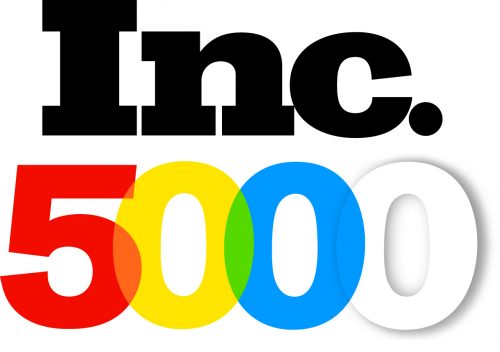he United States was already in the midst of a personal debt crisis. Then, the coronavirus pandemic swept the country and flooded the economy.
Now, a total of 36 million Americans have filed for unemployment since March. While the federal government has passed stimulus checks and expanded unemployment payments, this serves only as temporary assistance. When the expanded unemployment bill expires at the end of July, many will fall deeper into debt.
We are here to help you during these troubling times. Read on to learn how to find debt assistance during the coronavirus pandemic. Explore assistance efforts and other financial tips to help you overcome this trying episode.
Personal Debt Statistics
Before we dive into debt assistance, it is important to understand the magnitude of the issue. The American people were already overwhelmed with debt before losing their jobs or seeing their businesses shut down.
Roughly 157 million Americans have credit card debt. The average debt, including personal loans, exceeds $16,000 and is rising.
On top of rising credit card debt, many Americans are saddled with student loans. Graduates from the class of 2018 are leaving school with nearly $30,000 in student loans.
Student loans and credit card debt are in addition to mortgages and auto loans. The average American owes $180,000 and $29,000 for these types respectively.
These statistics are dated prior to the coronavirus pandemic. Now, tens of millions are seeking help with their debt.
Mortgage Forbearance
One way to get immediate help is to contact your mortgage company. Many of the major mortgage lenders are offering forbearance. This type of assistance is available to homeowners who have lost income due to Covid-19.
If your mortgage is guaranteed by the federal government, such as an FHA loan, your payments may be suspended up to 12 months. The way that it works is that the skipped payments are moved to the end of the mortgage.
The newly passed federal law also protects homeowners from the typical adverse effects of forbearance. The forbearance will not be reported to credit bureaus. Also, late fees are not assessed.
There is also assistance for evictions and foreclosures. All activity related to those events are suspended for at least 60 days.
Most of what we have described here falls under mortgages backed by the federal government. If you have a conventional loan, contact your lender for assistance. Many private lenders are extending similar assistance to their customers during these unprecedented times.
Debt Consolidation
If you have multiple types of debt, a consolidation package may be the solution to your problems. Here, you can roll multiple accounts into a single account.
Consolidation products accept various types of debt. Of course, credit cards and personal loans can be consolidated. In addition, less common types like medical bills, collections, and private student loans can be rolled in.
The lender will pay off the balances for all debts included in the application. A new account is originated with a sum of all the prior balances.
You may be wondering how this provides assistance for those in debt. A consolidation package reduces your monthly payments on debt. It achieves this in two primary ways.
The first is by offering you an Annual Percentage Rate (APR), or interest rate, which is lower than the rates you are paying on existing debts. With lower finance charges, you are certain to see a reduced monthly payment.
Another way to achieve debt assistance is by extending the loan term. For instance, consider a scenario in which private student loans still have 3 years left on the payment schedule. By spreading those payments out over a new 5-year loan term, your monthly payments will be significantly reduced.
Lastly, debt consolidation can help you with unfavorable fees. You can avoid annual fees on credit cards. Also, it is a lot easier to manage a single account rather than a handful. This lowers the likelihood of seeing late fees as your new account is easier to manage.
Debt Restructuring
Some consumers are not in a position to secure new financing in the form of loan consolidation. These individuals are no longer capable of making on-time payments. Perhaps they lost their job or business due to the coronavirus pandemic.
Troubled consumers can seek out a debt restructuring solution instead. Under this scenario, the lender is no longer confident in your ability to repay at the current rate. For them, receiving some revenue is better than none coming in at all.
Therefore, they offer a debt restructuring solution to help. Some of the techniques used are similar to a debt consolidation package. You will see a lower APR and extended loan term on a restructured solution.
The difference is that a loan consolidation package typically reduces financing costs to the borrower. On a restructuring solution, the lender attempts to avoid any revenue loss. Instead, the lender extends the loan and collects equal interest charges over the new years.
Another benefit to the borrower is that you can work out the fees. The lender may agree to waive charges like late fees to get payments coming in again.
Other Debt Assistance Tips
The best advice is to stay in regular contact with lenders and service providers. Utilities like electric and mobile phone companies are also helping consumers. If you can get a deferred payment for your services, the saved money can be routed toward debt.
You could contact a certified credit counselor to help you manage debt. They will develop a debt pay off solution to help you pay off outstanding balances.
Also, make sure you take full advantage of government assistance. For example, the federal government is offering an additional $600 in unemployment insurance through the end of July.
Get Out of Debt Today
While times seem tough right now, there is light at the end of the tunnel. By pursuing these debt assistance techniques, you can start on the path to being debt-free. Consolidation and restructuring packages will certainly help your situation.
If you have more questions on how to find debt assistance, contact us today to learn about our consolidation package.




